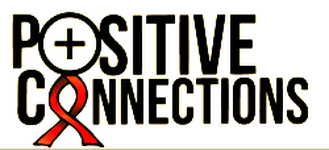Positive Connections’ mission is to advocate and provide comprehensive services to individuals who are impacted by HIV/AIDS, sexually transmitted infections, and Hepatitis C. We are dedicated to serving a diverse community, and take an intentional approach to ensure that all of our clients are given the support they need to live full and meaningful lives. The recent deaths of black trans women Riah Milton and Dominque Fells are a heartbreaking reminder that homophobia, racism, and discrimination still persist in our communities. Positive Connections mourns their deaths and all black and brown lives lost to systems of oppression.
As we reflect on the progress in the fight against AIDS, we are reminded of the systemic barriers that still exist for black and brown communities. In 2018, African Americans accounted for 13% of the US population, but 42% of the 37,832 new HIV diagnoses in the United States. We stand in solidarity with any organization or movement who works to improve the lives of any marginalized community members in their fight for equitable access to comprehensive healthcare, thriving schools, and safe communities.
Positive Connections believes that racism is real in our country and in our community. We reaffirm our commitment to fighting any form of discrimination based on race, ethnicity, nationality, income, gender, age, sex, sexual orientation/gender identity, or any other classification. And in the inimitable words of trans activist Marsha P. Johnson, “You never completely have your rights, one person, until you have all your rights.”
Positive Connections is dedicated to the following ongoing priorities:
1. Healthcare disparities are real and a result of systemic racism. Positive Connections intends to continue listening and learning from our diverse clientele. How can we can we close the care gap?
2. Positive Connections seeks to foster an environment of diversity, equity, and inclusion by recruiting leadership and volunteers that are representative of the diverse communities we serve.
3. Positive Connections is dedicated to creating equal opportunities by removing barriers of access through equitable hiring practices and intentional recruitment of diverse board members.
Positive Connections will continue to advocate for all of those impacted by HIV/AIDS and in particular those communities impacted disproportionately such as those of the Black/African American community and persons of color.
As we reflect on the progress in the fight against AIDS, we are reminded of the systemic barriers that still exist for black and brown communities. In 2018, African Americans accounted for 13% of the US population, but 42% of the 37,832 new HIV diagnoses in the United States. We stand in solidarity with any organization or movement who works to improve the lives of any marginalized community members in their fight for equitable access to comprehensive healthcare, thriving schools, and safe communities.
Positive Connections believes that racism is real in our country and in our community. We reaffirm our commitment to fighting any form of discrimination based on race, ethnicity, nationality, income, gender, age, sex, sexual orientation/gender identity, or any other classification. And in the inimitable words of trans activist Marsha P. Johnson, “You never completely have your rights, one person, until you have all your rights.”
Positive Connections is dedicated to the following ongoing priorities:
1. Healthcare disparities are real and a result of systemic racism. Positive Connections intends to continue listening and learning from our diverse clientele. How can we can we close the care gap?
2. Positive Connections seeks to foster an environment of diversity, equity, and inclusion by recruiting leadership and volunteers that are representative of the diverse communities we serve.
3. Positive Connections is dedicated to creating equal opportunities by removing barriers of access through equitable hiring practices and intentional recruitment of diverse board members.
Positive Connections will continue to advocate for all of those impacted by HIV/AIDS and in particular those communities impacted disproportionately such as those of the Black/African American community and persons of color.

